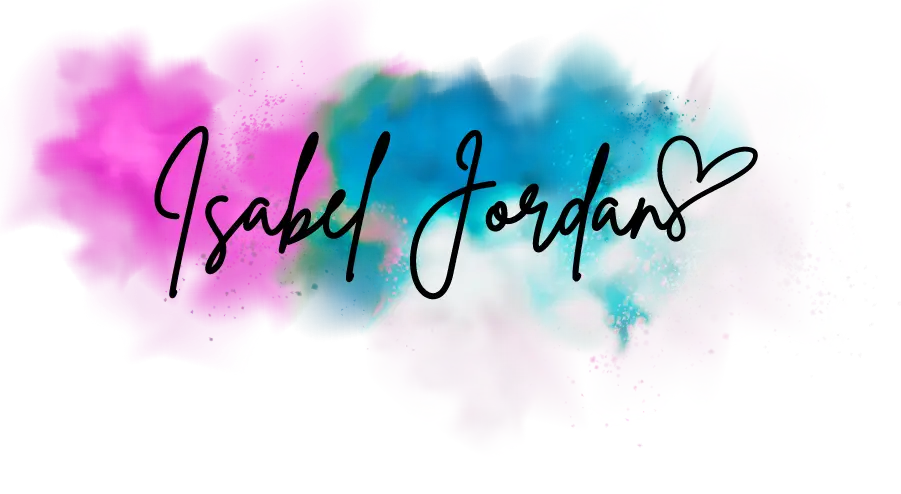Be your own biggest fan. Others will follow.
To sign with an agent or not…that is the question.
The answer seems simple, right? Of course you want to sign with an agent! What idiot would turn down an agent’s offer of representation?
Well, looking back at my journey to publication, I wish I would’ve been that idiot.
I started writing in 2001 while I was between jobs. I’d just read a historical romance that I hated. And I passionately hated this book. The plot was terrible, the characters were annoying and weak, the dialogue was stilted…it was a complete crapfest. So, I decided, hey, if this piece of garbage can get published, then I need to write my own novel. How hard can it be?
The answer seems simple, right? Of course you want to sign with an agent! What idiot would turn down an agent’s offer of representation?
Well, looking back at my journey to publication, I wish I would’ve been that idiot.
I started writing in 2001 while I was between jobs. I’d just read a historical romance that I hated. And I passionately hated this book. The plot was terrible, the characters were annoying and weak, the dialogue was stilted…it was a complete crapfest. So, I decided, hey, if this piece of garbage can get published, then I need to write my own novel. How hard can it be?
Yeah, I was really that dumb.
I finished my first romance novel in 2002. About a minute after typing “The End” on the last page, I started sending out query letters to agents. I received a few requests for sample chapters, which I sent out immediately, fully expecting to receive an offer of representation any minute.
Any minute dragged out for months until finally, I’d received “no thanks” messages from every agent who’d received my sample chapters. How could this have happened? What had I done wrong?
Armed with righteous indignation (surely, I’d been robbed!) and a laptop, I started doing research. I read about query letters and manuscript formatting (wait, you’re not supposed to single-space and print on both sides of the page?). I read about the publishing industry and marketing. I read about the craft of writing (so, head-hopping is bad, huh?). I read more romance novels. I read voraciously. And suddenly, I was…embarrassed. Deeply, deeply, embarrassed.
My novel, my baby that I’d slaved over for a year, was awful. It was so much worse than the so-called crapfest that had pushed me into writing in the first place that I seriously considered sending out thank you notes to the agents who’d turned me down, and apology notes to those who’d been forced to read the putrid sample chapters.
But I put my embarrassment to good use, using my newfound knowledge to write three more books. Each book was a little less embarrassing than its predecessor, until finally, I wrote a paranormal romance I thought was fairly decent. Hell, I wasn’t even ashamed to show it to people! It was time to start querying agents again.
The response from agents this time around was encouraging. Even rejections I received were tempered with notes praising my voice, characters, and dialogue. Finally, I received a call from an agent with a large, well-respected firm. She said she was a fan and would like to offer representation. Well, needless to say I fell on that offer like a starving woman on a Reece’s cup. Everything was coming together perfectly.
My new agent had tons of feedback on my novel. I wrote, re-wrote, and incorporated everything I was asked to incorporate. I even incorporated stuff I didn’t totally agree with, because, hey, I’m lucky to even have this agent, right?
About three months into this process, my agent responded to my latest round of re-writes, saying that she loved the novel. Everything was great. But (isn’t there always a giant BUT?)…after careful consideration, she’d decided this novel wasn’t unique enough to the genre to be my debut effort. It probably wouldn’t be an “easy sell”. How about I start sending her ideas for other books?
I was stunned. Other books? But I thought you loved this book. Isn’t that why you offered representation in the first place? Is there any such thing as an “easy sell”, and if there is, why wouldn’t I just sell it myself? That’s when she said something that made my blood run cold. She said, “Well, if you feel that strongly about it, maybe I’m not the right agent for you.”
I couldn’t back-peddle fast enough. No, no, everything was fine. Of course I’d write something else. Hey, I was going to write something else anyway, right? Why not start now.
Idea after idea was shot down unceremoniously. I was desperate. I started throwing out ideas I knew were terrible (zombie mutant vampire mermen, anyone?) but I had to do something. I had to prove that I was a good client. She hadn’t made a terrible mistake by offering me representation.
Completely directionless, I started writing a contemporary romance. It was just for fun. A little something to help snap me out of my funk. I sent the first twenty pages to my agent, who loved it. Yes, she said. This should be your debut novel.
I cranked out the next hundred pages or so in a few weeks and happily sent them off to my agent so that she could see my progress. A week went by. Two. Three. Four. I sent a polite “just checking in” email at week five. Another at week six. At week eight, I received a note back that said the sample chapters were great. The project was funny, sexy, and my dialogue was great. But (there IT is again)…due to no fault of my writing, contemporary novels were a tough sell, and she just wasn’t sure she was the agent who could best represent the project. She wanted to focus on paranormal romance instead of contemporary.
Now, wait just a minute. I gave you a paranormal you said you loved but didn’t want to sell. Then I gave you a contemporary, which you also said you loved but didn’t want to sell. I thought you said you were a fan. What kind of fan gives up on someone that quickly?
So, I was back to square one at this point. No agent. Facing the prospect of starting all over with the querying process. Undoubtedly sick of my ranting and Yosemite Sam-like cursing, my husband made a novel (pardon the pun) suggestion.
Why not publish the book yourself?
I was skeptical. I didn’t know anything about formatting my novel for publication, or cover art, or professional proofreading, or marketing the published book. It all seemed so daunting. So complicated. Was I even capable of figuring it all out?
Having learned my lesson from the debacle that was my first novel, I immediately hit the internet and did some serious research. I found out that the self-publication process was actually very user-friendly (thank you, Amazon), and everything that I couldn’t do myself (like formatting and cover art), could be easily farmed-out to professionals at a reasonable cost. Not only that, but I could publish whatever I wanted. My words. Uncensored. No one telling me what I should write about, or what type of books were an “easy sell”. I was in complete control (insert diabolical laugh here).
I rewrote my paranormal romance, the one that had originally captured my agent’s attention, once more. I stripped out all the elements I’d only added to please my agent. I kept some of her better suggestions. I was very pleased with the end result. It was the book of my heart. I hit the “publish” button on 8/29/14. Semi-Charmed was officially for sale.
I had exactly zero expectations for Semi-Charmed. I figured that if one person read it and enjoyed it, I’d be happy. I have to say I’m shocked with how well it’s performed to date. Every sale/loaned copy and good review brings me joy.
So, long-story-short, what I’ve learned from this incredible journey is that no one will ever be as big a fan of your work–or a better advocate for your work–than you can be. These are your stories, your voice. These characters exist only in your head until you give them life on paper. Why should you listen to anyone who tells you to write something different, something that will be easier to sell?
(And about this whole “easy sell” thing…I can’t say that I understand it at all. When I was told that paranormals were a tough sell, I went online looking for fans of the genre and found them EVERYWHERE. Goodreads message boards are absolutely covered with paranormal romance fans begging for new material. Romance readers are a particularly voracious group, so given this seemingly huge fan base, why are agents and publishers turning away paranormal and contemporary romance manuscripts? But I digress…)
Now, don’t get me wrong. Self-publishing isn’t for everyone. It’s a lot of work, and people without my OCD tendencies and control issues might not want to take it on. And if your goal is to be traditionally published, you’ll probably need a good agent. There’s nothing wrong with that goal. I fully support it. If you take your time and choose the right agent, you’ll have a great working relationship and a bright career ahead of you.
But overall, remember this: you aren’t lucky that an agent has chosen you. If an agent has offered you representation, it’s because you’re talented and you wrote a great book. An agent would be lucky to have you.
Sign with an agent, or don’t sign with an agent…it really doesn’t matter. Write the book of your heart and be your own biggest fan and best advocate. You’ll find your audience.
I finished my first romance novel in 2002. About a minute after typing “The End” on the last page, I started sending out query letters to agents. I received a few requests for sample chapters, which I sent out immediately, fully expecting to receive an offer of representation any minute.
Any minute dragged out for months until finally, I’d received “no thanks” messages from every agent who’d received my sample chapters. How could this have happened? What had I done wrong?
Armed with righteous indignation (surely, I’d been robbed!) and a laptop, I started doing research. I read about query letters and manuscript formatting (wait, you’re not supposed to single-space and print on both sides of the page?). I read about the publishing industry and marketing. I read about the craft of writing (so, head-hopping is bad, huh?). I read more romance novels. I read voraciously. And suddenly, I was…embarrassed. Deeply, deeply, embarrassed.
My novel, my baby that I’d slaved over for a year, was awful. It was so much worse than the so-called crapfest that had pushed me into writing in the first place that I seriously considered sending out thank you notes to the agents who’d turned me down, and apology notes to those who’d been forced to read the putrid sample chapters.
But I put my embarrassment to good use, using my newfound knowledge to write three more books. Each book was a little less embarrassing than its predecessor, until finally, I wrote a paranormal romance I thought was fairly decent. Hell, I wasn’t even ashamed to show it to people! It was time to start querying agents again.
The response from agents this time around was encouraging. Even rejections I received were tempered with notes praising my voice, characters, and dialogue. Finally, I received a call from an agent with a large, well-respected firm. She said she was a fan and would like to offer representation. Well, needless to say I fell on that offer like a starving woman on a Reece’s cup. Everything was coming together perfectly.
My new agent had tons of feedback on my novel. I wrote, re-wrote, and incorporated everything I was asked to incorporate. I even incorporated stuff I didn’t totally agree with, because, hey, I’m lucky to even have this agent, right?
About three months into this process, my agent responded to my latest round of re-writes, saying that she loved the novel. Everything was great. But (isn’t there always a giant BUT?)…after careful consideration, she’d decided this novel wasn’t unique enough to the genre to be my debut effort. It probably wouldn’t be an “easy sell”. How about I start sending her ideas for other books?
I was stunned. Other books? But I thought you loved this book. Isn’t that why you offered representation in the first place? Is there any such thing as an “easy sell”, and if there is, why wouldn’t I just sell it myself? That’s when she said something that made my blood run cold. She said, “Well, if you feel that strongly about it, maybe I’m not the right agent for you.”
I couldn’t back-peddle fast enough. No, no, everything was fine. Of course I’d write something else. Hey, I was going to write something else anyway, right? Why not start now.
Idea after idea was shot down unceremoniously. I was desperate. I started throwing out ideas I knew were terrible (zombie mutant vampire mermen, anyone?) but I had to do something. I had to prove that I was a good client. She hadn’t made a terrible mistake by offering me representation.
Completely directionless, I started writing a contemporary romance. It was just for fun. A little something to help snap me out of my funk. I sent the first twenty pages to my agent, who loved it. Yes, she said. This should be your debut novel.
I cranked out the next hundred pages or so in a few weeks and happily sent them off to my agent so that she could see my progress. A week went by. Two. Three. Four. I sent a polite “just checking in” email at week five. Another at week six. At week eight, I received a note back that said the sample chapters were great. The project was funny, sexy, and my dialogue was great. But (there IT is again)…due to no fault of my writing, contemporary novels were a tough sell, and she just wasn’t sure she was the agent who could best represent the project. She wanted to focus on paranormal romance instead of contemporary.
Now, wait just a minute. I gave you a paranormal you said you loved but didn’t want to sell. Then I gave you a contemporary, which you also said you loved but didn’t want to sell. I thought you said you were a fan. What kind of fan gives up on someone that quickly?
So, I was back to square one at this point. No agent. Facing the prospect of starting all over with the querying process. Undoubtedly sick of my ranting and Yosemite Sam-like cursing, my husband made a novel (pardon the pun) suggestion.
Why not publish the book yourself?
I was skeptical. I didn’t know anything about formatting my novel for publication, or cover art, or professional proofreading, or marketing the published book. It all seemed so daunting. So complicated. Was I even capable of figuring it all out?
Having learned my lesson from the debacle that was my first novel, I immediately hit the internet and did some serious research. I found out that the self-publication process was actually very user-friendly (thank you, Amazon), and everything that I couldn’t do myself (like formatting and cover art), could be easily farmed-out to professionals at a reasonable cost. Not only that, but I could publish whatever I wanted. My words. Uncensored. No one telling me what I should write about, or what type of books were an “easy sell”. I was in complete control (insert diabolical laugh here).
I rewrote my paranormal romance, the one that had originally captured my agent’s attention, once more. I stripped out all the elements I’d only added to please my agent. I kept some of her better suggestions. I was very pleased with the end result. It was the book of my heart. I hit the “publish” button on 8/29/14. Semi-Charmed was officially for sale.
I had exactly zero expectations for Semi-Charmed. I figured that if one person read it and enjoyed it, I’d be happy. I have to say I’m shocked with how well it’s performed to date. Every sale/loaned copy and good review brings me joy.
So, long-story-short, what I’ve learned from this incredible journey is that no one will ever be as big a fan of your work–or a better advocate for your work–than you can be. These are your stories, your voice. These characters exist only in your head until you give them life on paper. Why should you listen to anyone who tells you to write something different, something that will be easier to sell?
(And about this whole “easy sell” thing…I can’t say that I understand it at all. When I was told that paranormals were a tough sell, I went online looking for fans of the genre and found them EVERYWHERE. Goodreads message boards are absolutely covered with paranormal romance fans begging for new material. Romance readers are a particularly voracious group, so given this seemingly huge fan base, why are agents and publishers turning away paranormal and contemporary romance manuscripts? But I digress…)
Now, don’t get me wrong. Self-publishing isn’t for everyone. It’s a lot of work, and people without my OCD tendencies and control issues might not want to take it on. And if your goal is to be traditionally published, you’ll probably need a good agent. There’s nothing wrong with that goal. I fully support it. If you take your time and choose the right agent, you’ll have a great working relationship and a bright career ahead of you.
But overall, remember this: you aren’t lucky that an agent has chosen you. If an agent has offered you representation, it’s because you’re talented and you wrote a great book. An agent would be lucky to have you.
Sign with an agent, or don’t sign with an agent…it really doesn’t matter. Write the book of your heart and be your own biggest fan and best advocate. You’ll find your audience.





